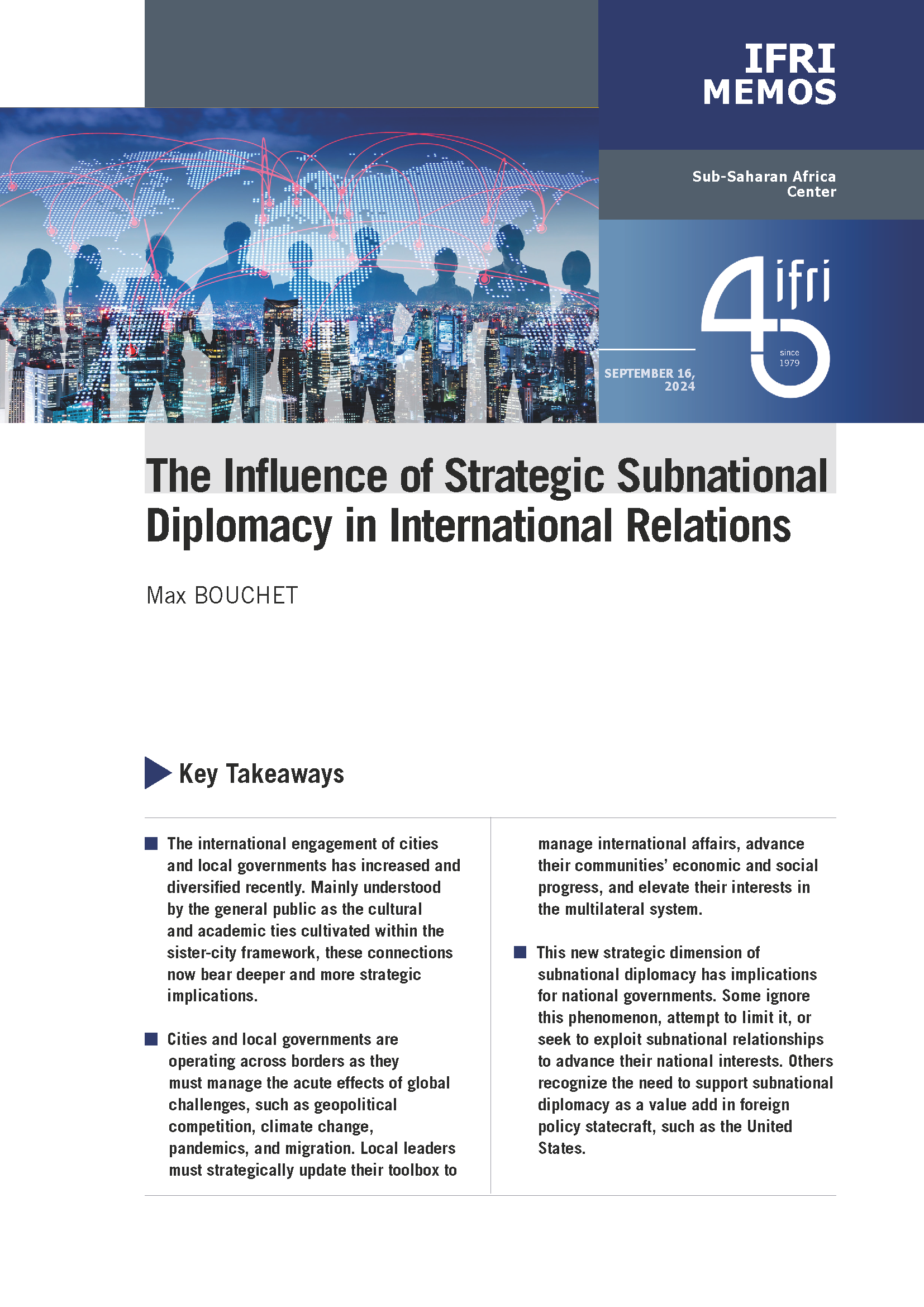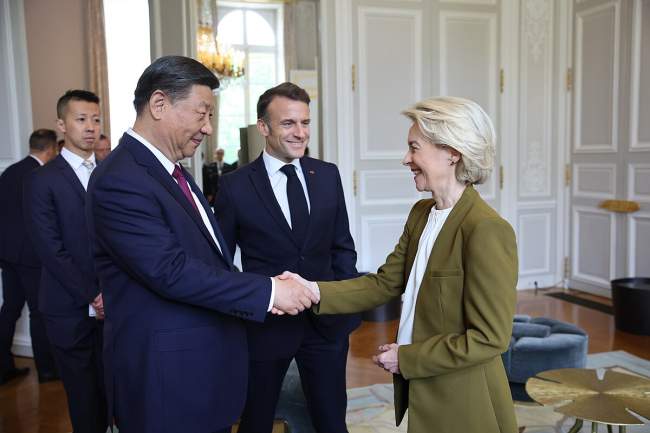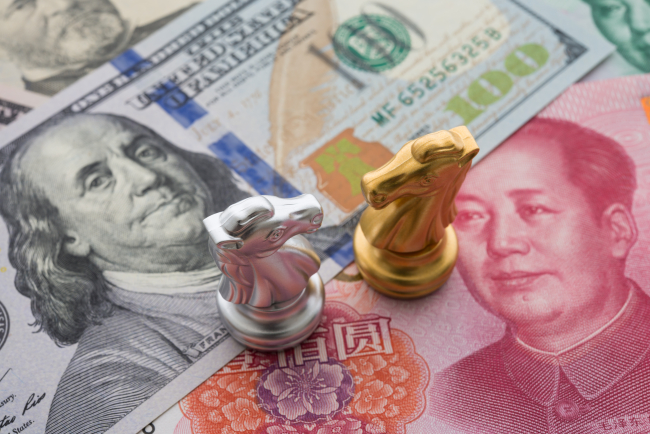Coming in from the Cold? An Update on North Korea's External Economic Relations
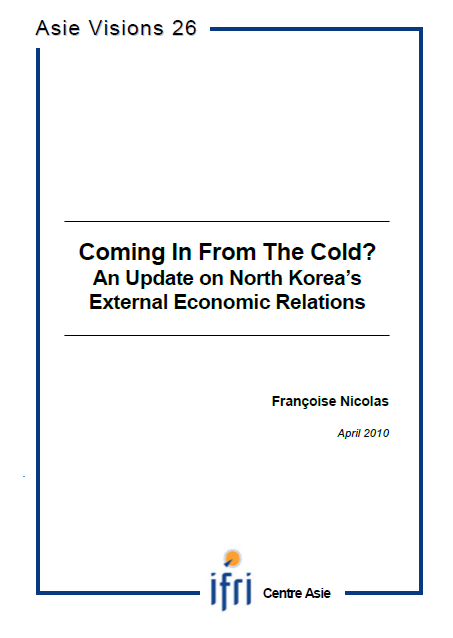
This brief analysis of the current external economic relations of the Democratic People’s Republic of Korea (DPRK) leads to a number of conclusions.
First, the North Korean economy maintains very limited exposure to the outside world and, as a result, to external influence. In terms of volume North Korea's trade is minuscule, even in relation with the size of its economy. This is also the case for foreign direct investment inflows.
Secondly, although North Korea is less isolated than often thought, its trade and investment flows are very heavily polarized both geographically and sectorally, limiting de facto their potential impact. In contrast to what was the case during the Soviet era, North Korea's main economic partners are not ideological partners but neighboring economies, namely China and South Korea. They are major partners in trade as well as in FDI. Russia still plays a non-negligible role but is in no way comparable to what was the case before the demise of the Soviet bloc.
Thirdly, North Korea's external economic relations are very much dictated by political considerations. Politics accounts both for the choice of partners and for the nature of the economic relations.
Fourthly, and more importantly, the very distinct nature of the DPRK's connection with the rest of the world, and primarily with its two major economic partners, sets it apart from other transition economies and in particular from China, but also from Vietnam. In the case of North Korea, economic openness, although announced time and again as an official objective, cannot be seen as an instrument for enhancing competitiveness or as part of a development strategy. The recent, renewed signs of reform in the direction of increased openness should thus be interpreted with utmost caution.
Fifthly, the structure of the country's external trade is indicative of an economy in survival mode. The substantial aid component in the inter-Korean trade and FDI relationship undoubtedly further substantiates such a claim. Surprisingly, relations between North Korea and China are more often based on a market-economy logic, although this only holds true for trade flows and not FDI flows. The probability of change through trade appears still very limited.
Lastly, the role the European Union may play in the region remains very much an open question but the margin of maneuver is limited. Given the state of play described earlier, it would be extremely naïve to believe that a European engagement strategy vis-à-vis the DPRK could contribute to economic change. In addition, the country's lack of attractiveness for potential investors is a further obstacle. However, the persistent uncertainty and the lack of visibility over the political and economic evolution of the DPRK should not deter European interest in the region and, far to the contrary, should provide a strong incentive to closely monitor the economic moves made in Pyongyang.

Also available in:
Regions and themes
ISBN / ISSN
Share
Download the full analysis
This page contains only a summary of our work. If you would like to have access to all the information from our research on the subject, you can download the full version in PDF format.
Coming in from the Cold? An Update on North Korea's External Economic Relations
Related centers and programs
Discover our other research centers and programsFind out more
Discover all our analyses
Strengthening US-EU Cooperation on Technical Standards in an Era of Strategic Competition
Transatlantic ties have had a rough go in recent months. After an unprecedented degree of alignment on Russia in the first half of 2022, including the quick and efficient rollout of a series of groundbreaking sanctions packages, the United States and Europe stepped back into dispute territory with the fallout from measures taken by Washington, notably some key provisions of the pathbreaking Inflation Reduction Act (IRA) passed last summer.
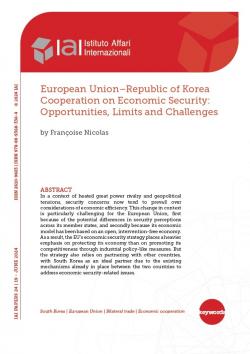
European Union–Republic of Korea Cooperation on Economic Security: Opportunities, Limits and Challenges
This piece is a revised version of a paper presented at the conference on “New Convergences in EU-ROK Economic Security Relations”, organised in Rome on 30 January 2024 by the Istituto Affari Internazionali (IAI).
France Adapts to an Era of Strategic Competition With China
Power and Financial Interdependence
The link between financial self-reliance and geopolitical power has long been debated. The unbalanced Sino-American trade relationship has created asymmetric financial ties which generate potential sources of leverage for both parties and will not quickly disappear. Absent a clarifying major crisis, it will be difficult to definitively determine which party has greater leverage.


